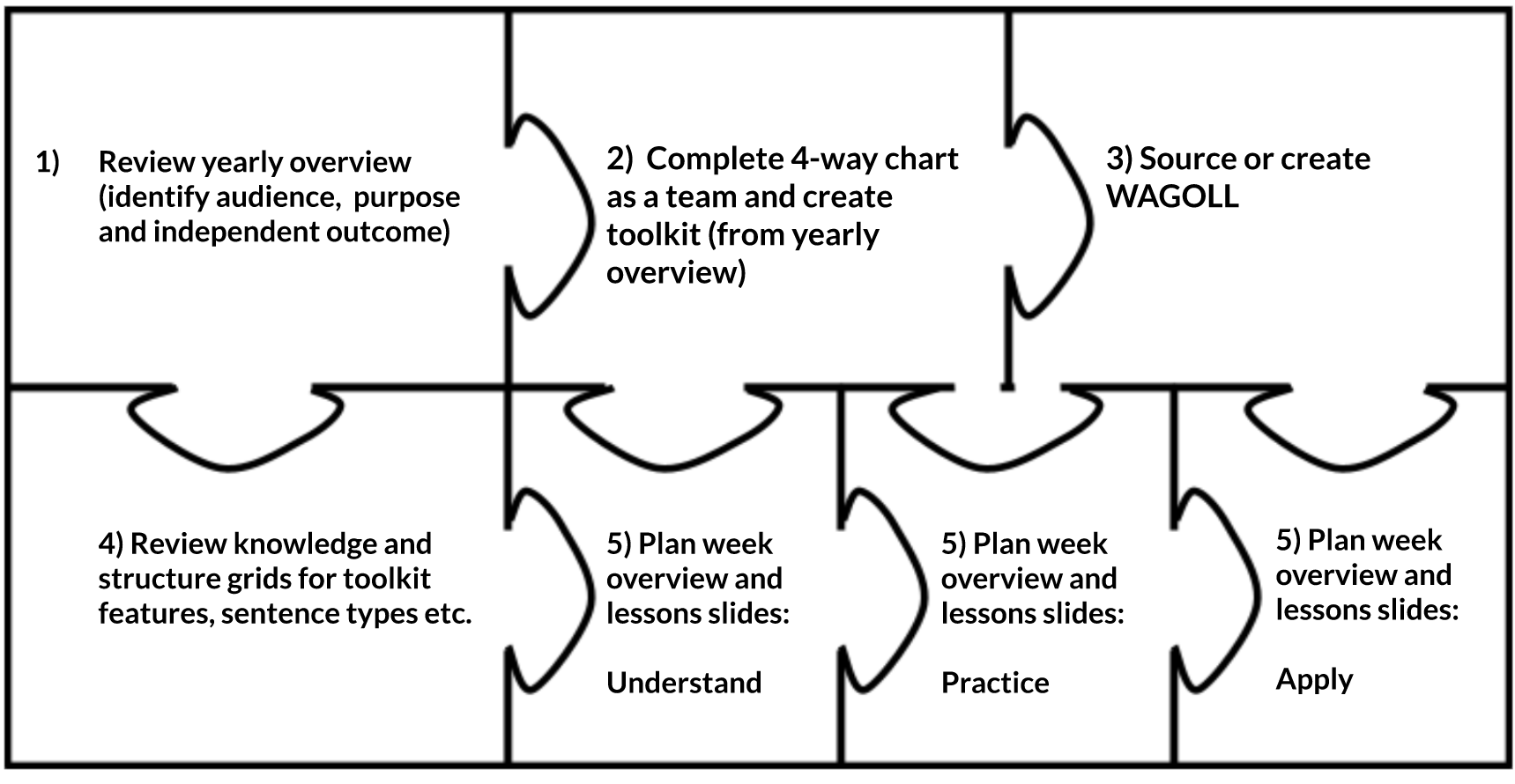Writing
Writing is an extension of memory (Willingham, 2017).
The composition of writing is a necessary means where every pupil can express and record their thoughts and ideas to convey meaning to the reader. The awareness of the audience and understanding the purpose of their writing (to express, discuss, inform or persuade) are important aspects all children are supported with so that they write in the appropriate register. Oracy, reading and vocabulary generation are key components in broadening pupils' repertoire of language as well as being able to demonstrate fluency in employing and manipulating phrases, sentence structures, punctuation and other grammatical features to achieve the desired effect: demonstrating a secure, conscious control of their composition.
The curriculum starts from Reception where there is plenty of opportunity for pupils to 'step-out' (verbally rehearsing with actions) a text - being exposed to language and compositional structures whilst supporting the articulation of accurate sentences - to Year 6 where they are supported to write in the correct register, depending on their purpose and audience, selecting the most appropriate vocabulary and grammatical structures to achieve cohesion within and across paragraphs.
Each writing unit comprises 3 weeks: Week 1 (Understand); Week 2 (Practice); and Week 3 (Apply). The Understand week is the opportunity for pupils to be immersed in the purpose of writing, exploring the vocabulary needed, technical skills required whilst building a mental picture to aid the thread (cohesion) of their composition. The Practice week is then the opportunity for pupils to practise writing in collaboration with the teacher and peers, exploring how to successfully draw upon prior knowledge and the previous week's skills to achieve the desired outcome. The Apply week is an independent week for pupils to apply this knowledge to a new stimulus and then publish their final outcome.
Editing and feedback play a huge part in the children producing their successful published piece as it is tailored to the needs of the individuals within the class. This promotes self and peer-reflections whilst enhancing an environment of support where children feel comfortable to experiment and take risks with new language and compositional features. Regular and ongoing celebration of work is common classroom practice which all children thrive for.
Teachers assess each piece of work using either the interim frameworks (Yr 1, 3, 4 & 5) or the Teacher Assessment Framework (TAF; Yr 2 & 6).
Note - Reception assess against the Early Learning Goals.
Regular and robust internal and external moderation measures are in place to ensure judgements are consistent within and across year groups.


